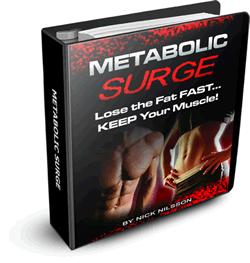By Marwan Killu
Author of "The Fat Loss Blueprint"
If you don’t know what a Keto diet is, Keto macros are 85% fats, 10% proteins and 5% carbs but includes no starchy carbs with even some vegetables carrying a yellow flag as in not permitted to eat them.
Like any diet, it works by getting you in a calorie deficit but is not a long term solution which is why there are all these diets that come and go and the majority of people that go on these “diets” end up gaining the majority of the weight they lost because they have not changed their habits that got them to this weight in the first place.
Below I state some arguments as to whether a Keto diet is beneficial for building muscle and this applies to all variants of Keto.
So when it comes to build muscle or burning fat we need to create an Optimal Environment, Optimal Management of Hormones.

1. Insufficient Protein
You all know about protein and its anabolic properties whether that is to build muscle or burn fat, and in order to build muscle you need to eat a minimum 1g of protein per 1lbs of body weight.
You won’t get enough protein from being on a Keto diet to build muscle.
Working out in the gym results protein breakdown and if protein degradation is greater than protein synthesis (which it will be because of lack of sufficient protein in the diet from Keto) you end up losing muscle.
The most anabolic amino acid from protein is leucine. It is a potent inducer of amino acid uptake and protein synthesis.
And love them or hate them carbs are important for muscle building because glucose is the preferred fuel for the body to make ATP (Adenosine TriPhosphate) so it's very involved in stress response.
Insulin is the most anabolic hormone in the body along with testosterone for building rock hard muscle.
Yes carbs are not needed to raise insulin levels as protein can raise insulin too but it is done through a different metabolic pathway and it does not raise it in the “same” way.
2. The Issue of Insulin
Insulin’s job as a carries is to carry the nutrients to several tissues in the body including the muscles, fat cells and liver.
All dietary carbohydrates are broken down into glucose in the small intestine, which is then absorbed into the bloodstream.
This will either be used as an immediate energy source or it will be stored in muscle tissue, the liver or as body fat - as directed by insulin.
Insulin binds to the insulin receptors on the cell which then enables the uptake of glucose and insulin is the number one hormone that can direct glucose into the muscle cells through the GLUT 4 pathway.
When there isn’t enough glucose the body will pull glucose from other sources such as lactate, pyruvate and amino acids through a process called gluconeogenesis.
However Gluconeogenesis is not a healthy energy source and it puts a strain on the liver and kidneys and as well as that the body tends to adapt to a shortfall of calories and by burning less of them.
If the Pancreas is not making enough insulin amino acids will have a hard time getting into the cells. Without sufficient glycogen you cannot make ATP which is the body's preferred energy source. Glycogen is stored energy in the muscle and liver and has a direct impact on protein synthesis.
In humans, testosterone is primarily secreted in the testes of males and the ovaries of females. Testosterone is present in everybody and is a steroid hormone from the androgen group. It has a whole host of functions including increasing muscle mass and strength, maintaining bone strength and ensuring the sexual organs are in working order.
3. Lack of Carbs
When you are on keto diet muscle cells and liver will be depleted of glycogen.
Glycogen is stored energy in muscle cells and liver. Each gram of carbs holds around 3-4g of water. Glycogen availability directly influences protein synthesis.
To maximize protein synthesis you need carbs and the reasons for that are because...
- Carbs are muscle sparing and a source of energy.
- Carbs have a direct affect on testosterone more than fat and protein and insufficient glucose has a big impact on the nervous system.
Without carbs you will have a hard time recovering from workouts which will result in higher cortisol levels.
4. Murdering Your Testosterone Levels
Another factor which we need to take into account is the hormone Testosterone.
In humans, testosterone is primarily secreted in the testes of males and the ovaries of females.
It has a whole host of functions including increasing muscle mass and strength, maintaining bone strength and ensuring the sexual organs are in working order.
Cortisol has the opposite effect of testosterone, is anabolic to body fat but catabolic to muscle building.
And when cortisol is overly elevated will affect protein synthesis by directly impacting mTor and myostatic gene so anything that raises cortisol levels for a prolonged time will have a negative impact on testosterone because the body will raise cortisol as a fight or flight response to a situation.
Such situations are low-carb dieting, Overtraining and Calorie restriction. These will all raise cortisol levels for prolonged periods of time which will murder your testosterone levels.
You will overtrain because of the lack of carbs. Carbs help you recover from your workouts. The reason why higher-carb diets works to lower cortisol and increase testosterone is because high-carb is a great natural testosterone booster is because it raises insulin levels.
Insulin blunts cortisol and therefore raises testosterone because as we mentioned earlier Cortisol is the antagonist (opposite function) to Testosterone.
Working out is a stressor to the body and generates a lot of cortisol in the body and if we take things further we can look at the body’s energy systems and how this impacts training in the gym.
The human body has 3 energy systems which it utilizes depending on the situation.
- The ATP-PC System (Adenosine TriPhosphate / Creatine Phosphate) max duration 10-15 secs.
- Anaerobic Lactic (Glycolytic) Energy System 6-12 reps
- Aerobic Energy System 12 reps +beyond
Bodybuilding uses mostly anaerobic energy systems but in order to activate the Type 2 muscle fibers you need to lift explosively and use heavier weights.
Your body can still make ATP from fatty acids in order to drive moderate to low-intensity exercise, but the process is simply not quick enough to supply intense forms of exercise.
At least, not nearly as well as glycogen from carbs. When glycogen is depleted this process is significantly hindered.
5. Inhibition of mTor
Now we come to the stuff that happens on the cell...
mTOR (mechanistic/mammalian target Rapamayasin) is arguably the most important cell signalling complex for muscle growth because it is the master-controller of protein synthesis in the cell.
mTOR is activated by three factors:
- Mechanical stress (from heavy training loads)
- Growth factors (IGF, growth hormone, insulin, etc.)
- Amino acids (particularly leucine)
You know by now Insulin is the most anabolic hormone for building muscle along with testosterone and this is why you hear the bros in the gym always talking about spiking insulin.
The debate tends to be about whether you should have carbs before or after the workout but that is for another article for another day!
Without insulin from the carbs in the body mTor will be inhibited and the lack of glucose will have a big impact on the nervous system.
Without sufficient glycogen you cannot make ATP which is the body's preferred energy source.
6. Insulin’s Main Actions
Rapid (seconds)
- Increases transport of glucose, amino acids (among the amino acids most strongly transported are valine, leucine, isoleucine, tyrosine and phenylalanine), and potassium into insulin-sensitive cells
Intermediate (minutes)
- Stimulates protein synthesis (insulin increases the formation of new proteins)
- Activates enzymes that store glycogen
- Inhibits protein degradation
Delayed (hours)
- Increases proteins and other enzymes for fat storage
And so without enough insulin, you lose all of the anabolic effects this hormone provides, since there is not enough insulin to transport or store energy or nutrients.
On a health note research has been shown that eating a low carb diet has an impact on decreasing insulin sensitivity, which is also bad news for building muscle and good for gaining fat.
Keto Diets Are NOT Good for Building Muscle
To summarize, keto isn’t conducive to building muscle through insufficient protein in the diet, high amounts of cortisol through inadequate recovery, inhibition of mTor and inability to make protein synthesis.
Yes, in theory you can raise your protein levels but that would take you out of “keto” and all it will become is a glorified Atkins Diet.
References
https://www.ncbi.nlm.nih.gov/pubmed/9425398
https://www.ncbi.nlm.nih.gov/pubmed/20489032
https://www.ncbi.nlm.nih.gov/pubmed/20091182
http://bjsm.bmj.com/content/early/2018/01/18/bjsports-2017-097608
---
Editors Note:
If you're interested in learning more about Marwan's program, it's called "The Fat Loss Blueprint" and it's PACKED with excellent information on how to get lean FAST, while maintaining optimal hormone levels.
On that page, you'll learn how Marwan took himself from an overfat, stressed-out dad, and got himself RIPPED.
![]()
More From Fitstep.com
Share This Page...
---
Home -> Fat Loss -> Tips and Articles -> Build Muscle on Keto Diet?

